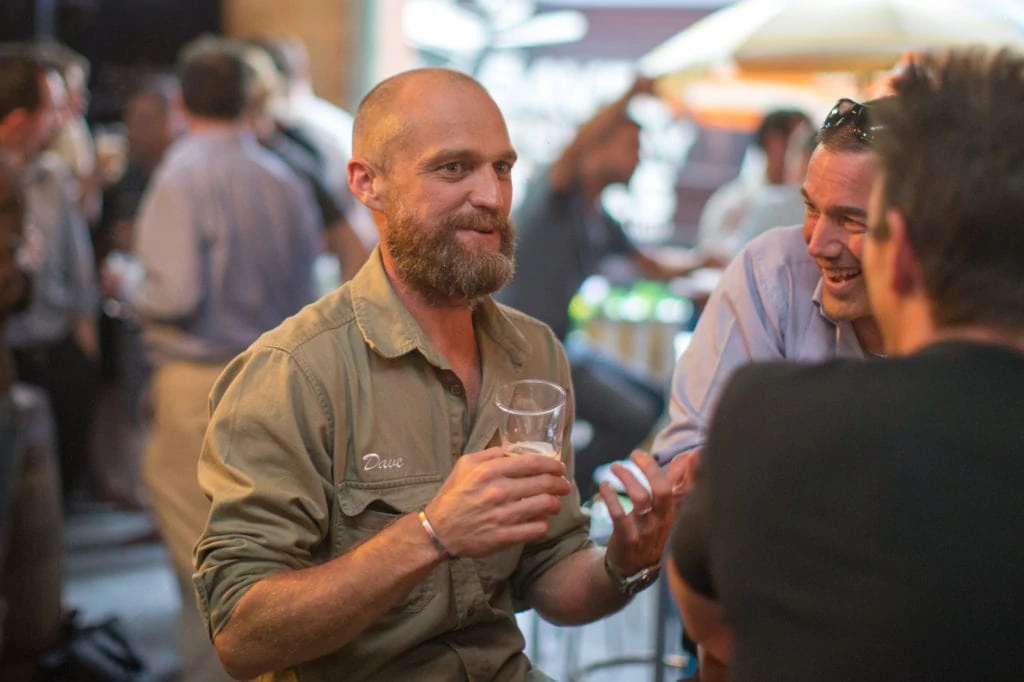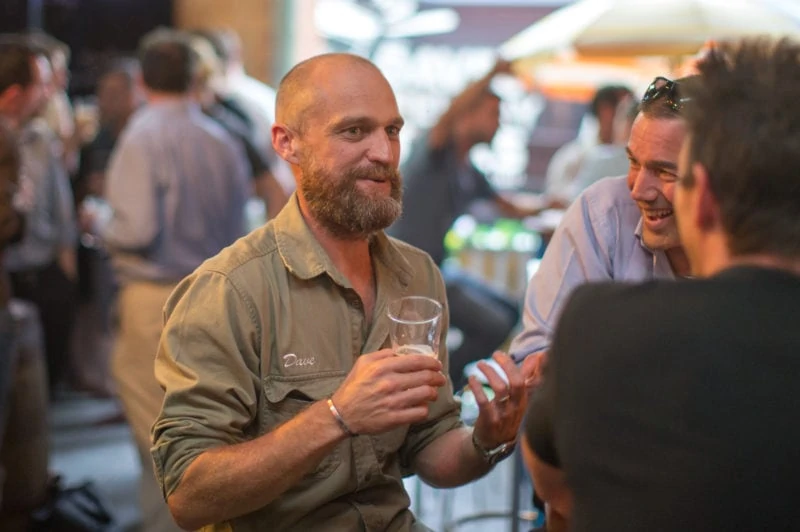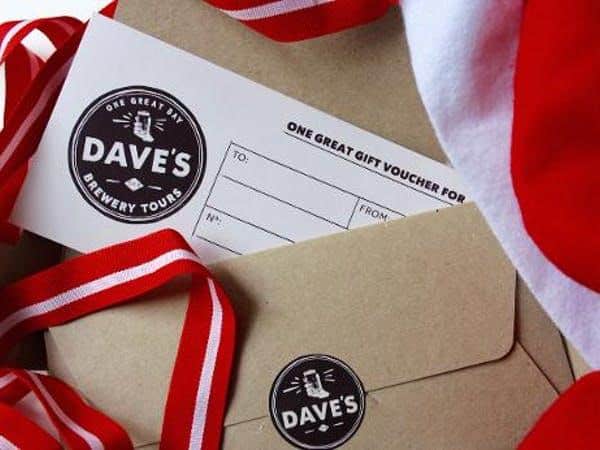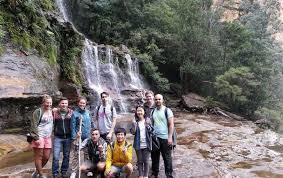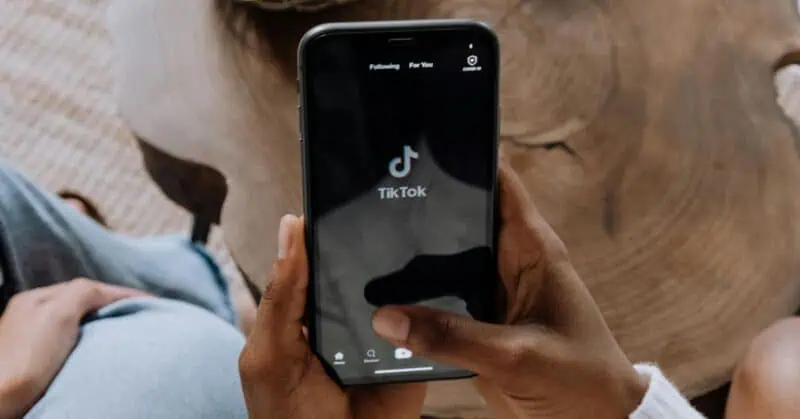Just over a week ago, when Jessica from Arival asked me to write an article about COVID-19 and provide insights and possible tips for fellow business owners, the chosen topic was diversification and how our diversified portfolio has helped us deal with the current crisis. It hasn’t. Well, that’s not entirely true; the short version is that pre-COVID-19, we had active interest and ownerships in twelve businesses across two countries, and as of today, just three of these are generating revenue.
Our diversification strategy is geared heavily towards tours, activities, and events. If you’re one of the thousands of owners and operators in this space, you know how that is going. Of the other three, two are producers with mixed model operations that are surviving through adaptation, and the other is in infrastructure engineering, which could be considered the only venture that may go through with limited damage.
So, as our approach to diversification, which only a month ago was paying dividends, is now in the crosshairs of the crisis, there really aren’t too many tips or glimmers of hope I can offer. However, I believe what we have done at Dave’s Travel Group, like many others, can provide some guidance to others, or at the very least, open us up for advice or guidance from others if we are “doing it wrong.”
For context, Dave’s Travel Group is (before this mess) the leading operator of tours and activities in NSW. We provide the most comprehensive range of tours and activities out of Sydney, Canberra, Newcastle, and Hunter Valley. We own and operate a variety of brands in a way that extends our product range, optimizes costs of delivery, and minimizes overhead through a shared services model. We formed the group in early 2019 and basically were on track for a profitable year (ending 30th June), with royalties being paid to all brand owners, dividends to owners, a positive cash balance with no debt.
Things were going well back then (February seems like a decade ago). Although we now find ourselves in strange and concerning times, I am not a believer that much can be achieved by standing around crying over spilled milk, we need to shed a tear, take out a cloth, clean up the mess, and go find some more milk.
So, the following are the principles we’re developing at Dave’s as we fight our way through COVID-19. Some I have included a few simple approaches that may assist your thinking; others speak for themselves. I hope they help:
Choose a Survival Attitude
This thing is terrible. The shit has hit the fan, and everything is happening at lightning speed. The scale and gravity of the ever-changing situation takes time to sink in, as does what seems to be an ever-lengthening timeline to recovery. These are all shocks to our systems, and we’re all having to deal with both shock and grief. A massive challenge, and without bravado or sounding like a Tony Robins wanna’ be, you need to make a choice in how you deal with this. For us, our decision as owners of our business was to choose survival. All our plans and actions are focused on getting to the other side of this crisis. While looking after as many of our people and communities as we can.
Resilience is a quality that is built through experience and effort. Our survival attitude is what we have chosen to help develop and build upon our personal and collective resilience. It is the attitude that is guiding all of our decisions, and it will be the attitude that enables us to be operating in some way when this is over.
Know your numbers
By now, you are more than three weeks into this ordeal and should have a handle on your financial position. If you do not, then my advice is to seek support from someone who can quickly and confidently help you get there. If you don’t have a working knowledge of your position by now, I hold grave fears for your business.
At Dave’s, we have always placed a strong emphasis on knowing our numbers, and it has been from this position that we have been able to make decisions with speed and confidence. Within the past fortnight, Dave’s Board has removed over 70% of monthly overhead from the business and is working to reduce this further while retaining all our full-time employees. We would not have been able to move as quickly if we were not confident in what our accounts were telling us.
Simple metrics, you must know:
- Cash (the amount you have ready access to)
- Accounts Receivable (the people who owe you money)
- Accounts Payable (the people you owe money to – I include banks and credit cards in this)
- Lines of Credit (the amount you have access to, but comes at a cost)
- Refunds Due or Expected (the amount you have committed or expect to refund)
- Assets (what you own)
- Equity (what it all boils down to – but TBH, these amounts don’t mean too much just now unless you have a path to liquidation)
Establish a War Room
This is not as dramatic as it sounds, and by far in most places is probably virtual. For us, it is our Board (2 Owners, the Managing Director and Finance Director) and an established cadence of meetings. Since this began, we have met daily and sometimes more depending upon the urgency of need. Establishing this extraordinary governance approach during the crisis has enabled us to share information, make decisions, and set objectives quickly and concisely. We work within the constraints of remote working; we acknowledge the emotional and financial toll; this is exacting on all of us, and we discuss, debate, and decide as much as possible without undue emotion. Our decision-making process and governance approach are transparent, and where it is not, we move quickly to establish a new “fit for purpose” rules as we go to ensure we can progress.
Simple Approach:
- Know where the buck stops
- Establish or enforce decision authorities
- Be flexible with how decisions get made, but don’t not make decisions
Like this? register for our Newsletter to continue the conversation
Sign UpForm teams
Everyone can’t be involved in everything, and some people in times of stress require more or different types of direction than usual. Too many cooks are a real thing, and right now, everyone has an opinion, so you need to be firm on which decisions you and your people are involved in and, if required, establish teams to deal with specifics.
There is always something to be done, even if your only course of action is to fold, stuff needs to happen. At Dave’s, we have maintained the standard separation between operations management (the day to day stuff that runs the business) and governance (the longer-term, strategic, and often harder decisions required), with the MD being the single connection.
Major announcements have been made as a group, and the whole team gets together weekly for a virtual happy hour. However, we find maintaining clear separation has enabled each group to get on with what is required.
Enable the unusual from your people
Hard times can often bring out the best in people and provide a chance for some to shine in unique or ways unseen before. But the onus is on the owners and leaders to enable your people to shine. Open up discussions and avenues for your team to offer new approaches, thoughts, and methods to solve problems. Remove any preconceived notions on what each person is good at or what their role has been. Unshackle them and allow them to contribute in ways they are most comfortable in and support them throughout.
This is always easier said than done, especially during times of stress when some people regress into safety or defense. For our team, bringing all remaining staff “into the tent” within the two defined groups has enabled our people to share experiences, viewpoints, and approaches. It has also meant more people have put their hands up for more things, helping us achieve more, sooner, and with a very active team spirit.
Communicate often and clearly
Regardless of your size or structure (we are now a team of 10), now is not the time for contracting into your shell, avoiding the needed discussions, or using veiled language. Your decisions need to be articulated clearly and promptly. Your stakeholders will appreciate it as will you when and if you are seeking guidance or information in your efforts.
Within Dave’s, we have an unambiguous communication schedule and style. The Board meets twice a week (changed from daily during the initial fortnight) to make decisions, these decisions are relayed and communicated by our MD to the team the same day as the Board meets and vice versa. Major announcements (like we’re downsizing, we’re closing operations, we’re mothballing the business, etc.) come from the Board direct to staff in a clear, no bullshit language. We have only had to do this once so far, and our approach was simple:
- Be honest
- Explain the situation and decision rationale
- Explain the choices and consequences accurately
- Outline the effects the decision will have on the business and each of them
- Answer questions
- Do not hide anything
And of course, our communication is bi-directional, with staff all having access to myself and the broader Board whenever they need it. Our only caveat is, we have made it very clear that the MD is their sole source of truth for anything that affects them. If a question is asked that is specific to a team member’s situation, it will be referred to the Managing Director. This ensures clarity on where to direct questions. It also allows those to receive answers in a timely and effective manner.
Develop your plan
While much of this crisis is happening around us all. And we each have a limited level of control of how it is affecting our businesses and livelihoods, a plan based upon hope is no plan at all. If you are simply crossing your fingers that things will get better… or local, state, or the federal government will make it alright, and your business will recover because of the actions of others – Good luck, I wish I shared your optimism.
While the solution and end game for this is definitely on a global scale, if you want your business to be on the other side of it, you need to have a plan. A whole series of articles could and no doubt will be authored on this, but for us, our strategy centers around:
- Budget, split into 2 phases:
- Survival
- Recovery
- Product Mix (now and future)
- Distribution (now and future)
- Resources
- Our People
- Our Fleet
- Our Property
- Our Funds
- Our systems and data sources
- Marketing (now and future)
In a nutshell, our survival plan is about repositioning our cost base. This allows us to establish and extend our survivability, our recovery plan is about forming an information-based view on what our future looks like and what we need to do within that new future. I am sure it is not complete. However, we are adaptable and play to this strength.
Adapt the plan
The situation is fluid, the most fast-changing environment many of us have or hopefully will ever find ourselves in. This one is simple, be prepared to adapt your plan and build it in whichever format or tool you are most comfortable with that enables you to adjust it and understand the impacts/results quickly.
Understand available assistance
If you are lucky enough to have your business within a developed country or within a government jurisdiction that is undertaking economic relief and stimulus efforts, you are one of the lucky ones. As a business owner, you need to be active in understanding what assistance is available and what impacts it will have on your business. The same holds true for your personal finances, so stay attuned to the appropriate sources and factor them into your plan.
We are incredibly fortunate that our core business interests reside within Australia, which has been relatively fast to act and offer economic relief to businesses and households. It provides good and regular information, and by and large, the media does an excellent job of delivering information un-skewed by too much politics. Our plan is in Excel and sits outside our other systems.
This way, we can adapt it as new information comes to light and allows us to run scenarios that aid decision making. A simple approach:
- Choose your tool
- Build your plan
- Understand the assistance available
- Plug this into your plan to understand the impact
- Run scenarios
- Make decisions
- Communicate decisions
- Take action
- Move forward
Set deadlines
You can have an adaptive plan that has deadlines. Some hard decisions have already been made, there is no doubt more to come, and the best way to make hard decisions is to have a deadline. Make yourself and your teams accountable to deadlines. It enforces a sense of urgency and often provides confidence to your people that progress is being made, and they are not merely tethered to a drifting ship.
Currently, at Dave’s, with our adaptive plan in place we are working to a tiered set of deadlines that make it clear and straightforward for all to understand:
- The Board operates within a 30, 60, 90 and 180 day set of deadlines each with corresponding downstream deadlines
- The Board sets the MD weekly deadlines aligned to the Board level timelines
- The MD assigns teams members weekly and daily deadlines
Seek help
These are stressful times, and we are absolutely all in it together. There is no stigma or negativity attached to reaching out and asking for help. Our communities and industries are geared to help. It’s in their DNA. And for some, it is what is providing them with a sense of purpose during these difficult times. Find your confidants, your trusted network, or only someone, something, or someplace that you have comfort and confidence in sharing with and lean on them. Likewise, be there for others to lean on.
Our team is open, we talk, we’re here for each other, and we do all we can work as leaders to ensure everyone knows it. We work within defined structures and to set decision and communication patterns, but that does not negate or remove the human to human support we share at Dave’s and beyond. These are unprecedented moments and a crisis like nothing many on earth have seen before, but you are not alone.
Collaborate
Strange times require strange solutions, and that has undoubtedly been the case for us at Dave’s Travel Group. It was enlightening, but at the same time, not that strange for us that our natural tendency when faced with this crisis, the evolving government shutdowns and uncertain future was to reach out to our competitors in a spirit of collaboration. Our thinking was that yesterday these businesses were competitors, tomorrow they might be again. However, today they are potential partners and that we are going to be better off working together.
Although the situation changed exceptionally quickly and the window of opportunity to work with other operators to continue offering limited tours and share loads closed, the sentiment remains. The recovery from this will be long and arduous, the businesses that survive will need to consider the available market and how to interact with fellow operators to jointly re-establish the industry and local markets. The competition will return. However, the focus should be on market rebuilding, which will require a strong spirit of collaboration.
My best advice: Give people time to come to terms with where we are, and allow them to form their own views and plans. Get in touch to open dialogue in a shared spirit of collaboration and enter any conversation and arrangements in good faith on a “no harm, no foul” basis. Discussions may not result in a new agreement, some may progress only to fall apart, the strongest and best will endure.
Have an eye on the future
This will end, sometime, somehow. Although I have my own views on the various scenarios and outcomes, it is not my place, nor do any of you need another theory. What is important here is that while the immediate challenge we all face is literally survival, we must keep an eye cast towards and beyond the horizon and do some thinking about the future. How far forward, what level of confidence you have about that far off place and how your plan to get there is uniquely your own, but you must have a forward-looking mindset if you want any chance of getting to the future.


Our approach to the future manifests in our plan, its timeline, and imposed deadlines. Right now, we are in the survival phase of our strategy, and we must give ourselves and our team time to adjust to the current reality and space to put our actions in place. At some point (we have a deadline for that), we will switch to the recovery phase, but that does not mean we are not thinking and acting without a recovery mindset and vision of the future now. Having an eye on the future and believing there will be one for us is what drives us forward today.
Be realistic
While a positive and future based mindset is required, so too is a grounding in reality. Things are not right, many people are and will suffer, and we will lose what seems like unimaginable numbers. Right now, the most important thing any of us can do is to follow the advice of health agencies, practice social distancing and isolation for all our sakes. So while this tempers everything we can do right now and for some time into the future, be realistic about what is possible and what is sensible and be realistic with yourself, your people, and stakeholders – your business may not make it through. It is not fair, and some of the losses will be indiscriminate and seemingly random. However, when it comes to your business, you have a chance to preserve, but you need to take action to ensure that if your business suffers a loss, it is either because you called it or you could at least see it coming.
My advice in this regard is based upon what we have at Dave’s. Our teams are made up of a range of characters and personalities that provide balance. Seek advice and views to test your plans and continue to check it and your decisions as you proceed.
Contribute
The recovery of the tours, activities, and event industries will depend upon all of us, and I am a firm believer that we each have a role to play in returning the industry to health. Yes, many things will contribute to and constraint our recovery, but it should not be as a result of a lack of industry participation. Even with depleted numbers, we need to actively contribute and use our collective genius and determination to rebuild.
Whatever course of action you choose to take, I wish you, your families, your communities, and our world the best. My personal advice to everyone is to choose your news sources wisely, follow the directives from health agencies, support as many people as you can, seek help for yourself, get your exercise, eat and drink cleanly and as best you can. Please feel free to get in touch – I, like you, have stuff going on. Still, I am more than happy to chat regardless of whether we know each other or not. And I have to say, I am pretty sweet on this video conference thing now!
Be safe all.
Links for Dave:
LinkedIn: https://www.linkedin.com/in/davidphillips5/


